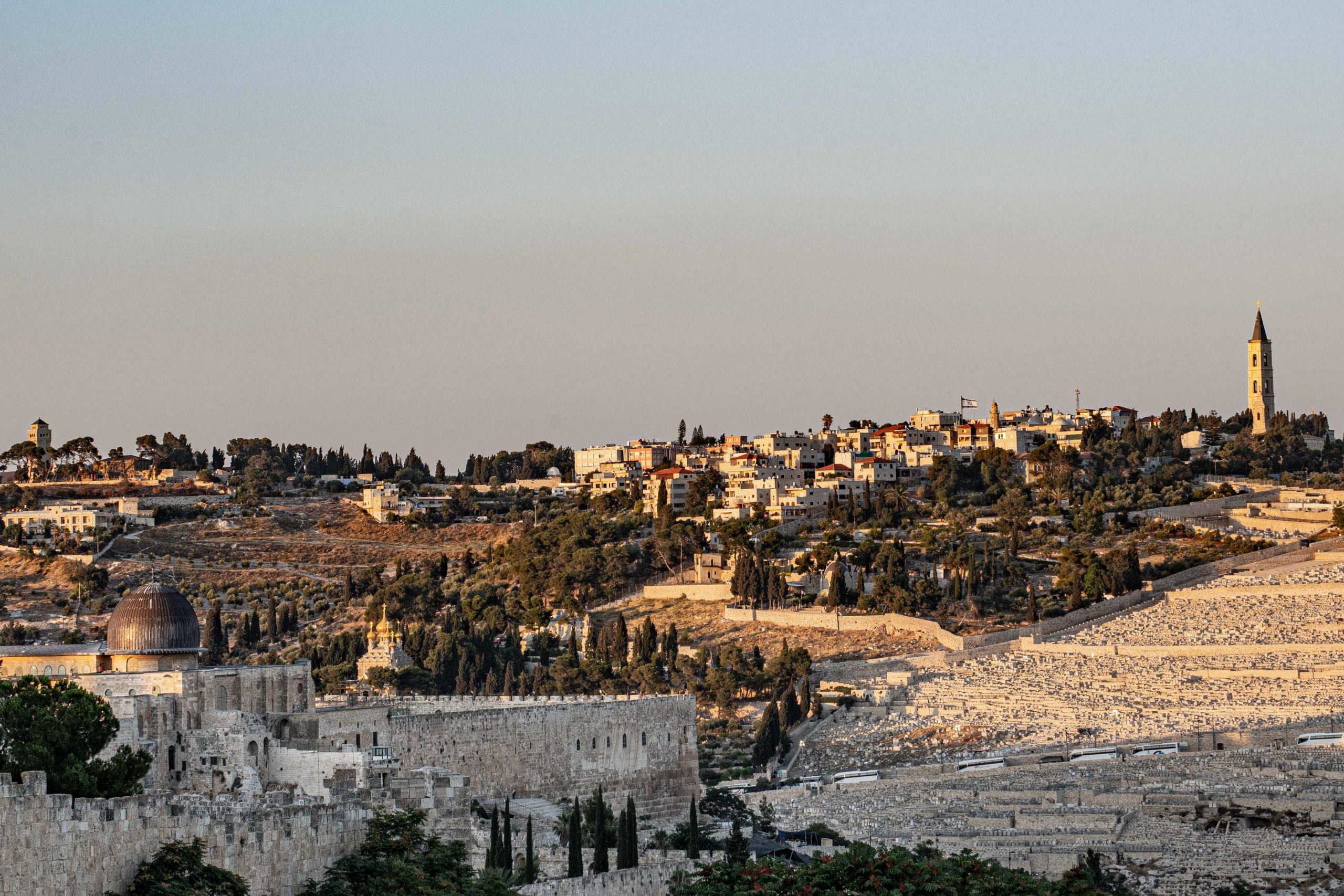
JERUSALEM: HUMANITY’S SHARED GIFT
Tuesday, October 10, 5:30-7:00pm,
JMC Library, 332 Case Hall (3rd floor)
This event will be live-streamed on our YouTube Channel:@serlinginstituteforjewishs8606
Jerusalem is sacred to the followers of Judaism, Christianity, and Islam. For centuries, the world’s different traditions have shared, fought over, built, and rebuilt the Holy City. Jerusalem is special for millions worldwide—Jews and Arabs, Israelis and Palestinians, and others—who revere it and regard it as a precious inheritance from their ancestors, spiritual or physical or both.
Panelists will include three scholars—Dr. Yael Aronoff, Dr. Mohamed Ghumrawi, and Dr. Saliba Sarsar—each of whom contributed to a volume about Jerusalem’s meaning for each monotheistic religion (all three envisioned and either edited or co-edited by Dr. Sarsar). Dr. Vered Weiss, who grew up in Jerusalem and who teaches IAH courses on Jerusalem, will chair the panel. The panel will discuss the significance of Jerusalem to the various communities, its current challenges, as well as visions for how it might be shared and/or divided. These mechanisms will be presented as a path toward advancing the values of faith, justice, equality, reconciliation, and cultural heritage; promoting the city’s sacredness; as well as caring for the city as humanity’s gift.
Dr. Yael Aronoff is the Director of the Michael and Elaine Serling Institute for Jewish Studies and Modern Israel, is the Serling Chair of Israel Studies, and is Professor of International Relations in James Madison College at MSU. Dr. Aronoff is past President of the Association of Israel Studies. Her book, The Political Psychology of Israeli Prime Ministers: When Hard-Liners Opt for Peace, (Cambridge University Press 2014), compares and contrasts six Israeli prime ministers and their decision-making on the Israeli-Palestinian conflict. Dr. Aronoff’s co-edited book, Continuity and Change in Political Culture: Israel and Beyond, with Ilan Peleg and Saliba Sarsar, (Lexington Books, 2021), includes contributions from ten leading scholars in political science, anthropology, Israel studies, and Middle East affairs that address the theme of continuity and change in political culture as a tribute to Professor Myron (Mike) J. Aronoff. Her recent publications include “Jerusalem: My Favorite City in the World!” in What Jerusalem Means to Us: Jewish Perspectives and Reflections, Eds. Saliba Sarsar and Carole Monica C. Burnett, Jerusalem Peace Institute and Noble Book Publishing Inc., 2023; “Prime Minister Benjamin Netanyahu,” Handbook of Israeli Democracy, ed. P.R. Kumaraswamy, Palgrave, 2022; and “The Zionist Center-Left Opposition to the Netanyahu Governments,” in Israel Under Netanyahu: Domestic Politics and Foreign Affairs, ed. Robert Freedman, Routledge, 2019. Dr. Aronoff has published in Foreign Policy, Israel Studies, Israel Studies Review, and Political Science Quarterly, and is on the editorial boards for Israel Studies Review and Israel Studies.
Dr. Mohamed K. Ghumrawi is a Visiting Assistant Teaching Professor in the Department of Politics and International Relations at Florida International University (FIU) in Miami, FL. He is also the Associate Director of the Mohsin and Fauzia Jaffer Center for Muslim World Studies at FIU and the founding Faculty Director of the “FIU in the Middle East” study abroad program. His research interests include Palestinian-Israeli relations, the Palestinian diaspora, geopolitics of the Middle East, nation-building and state formation, conflict resolution and peace studies.
Dr. Saliba Sarsar, born and raised in Jerusalem, is Professor of Political Science at Monmouth University and President & CEO of the Jerusalem Peace Institute. During 2022-2024, he is also a Visiting Research Collaborator at Princeton University’s School of Public and International Affairs. His teaching and scholarly interests focus on the Middle East, Palestinian-Israeli affairs, Jerusalem, and peacebuilding. Dr. Sarsar’s most recent authored books are Peacebuilding in Israeli-Palestinian Relations and Jerusalem: The Home in Our Hearts. His most recent edited books are The Holy Land Confederation as a Facilitator for the Two-State Solution and What Jerusalem Means to Us: Christian Perspectives and Reflections. His most recent co-edited books are Inequality and Governance in an Uncertain World, What Jerusalem Means to Us: Jewish Perspectives and Reflections, What Jerusalem Means to Us: Muslim Perspectives and Reflections, Democracy in Crisis Around the World, and Continuity and Change in Political Culture: Israel and Beyond.Dr. Sarsar has been featured in several publications, including The New York Times, and is the recipient of the Award of Academic Excellence from the American Task Force on Palestine; the Global Visionary, the Stafford Presidential Award of Excellence, and the Eugene Simko Faculty Leadership Award from Monmouth University; the Humanitarian Award from the National Conference for Community and Justice; and the Holy Land Christian Ecumenical Foundation Award.
Dr. Vered Weiss is the Serling Israeli Visiting Scholar and The Israel Institute Teaching Fellow at The Michael and Elaine Serling Institute for Jewish Studies and Modern Israel at Michigan State University. Dr. Weiss is a faculty member in the Center for Integrative Studies in the Arts and Humanities, and teaches courses on Israeli culture, Israeli cinema and television, Hebrew literature, as well as world literature. Dr. Weiss is co-editor of Tracing Topographies: Revisiting the Concentration Camps Seventy Years after the Liberation of Auschwitz (Routledge, 2017), and is co-editing a volume about Israeli culture and post-traumatic stress disorder (Lexington, 2023). Her current research project explores the interplay between the location of marginalized characters and the ways in which narrative empathy is formulated in literature, and she is also collaborating on a co-edited book with Elana Gomel about Israeli speculative fiction (Liverpool University Press).